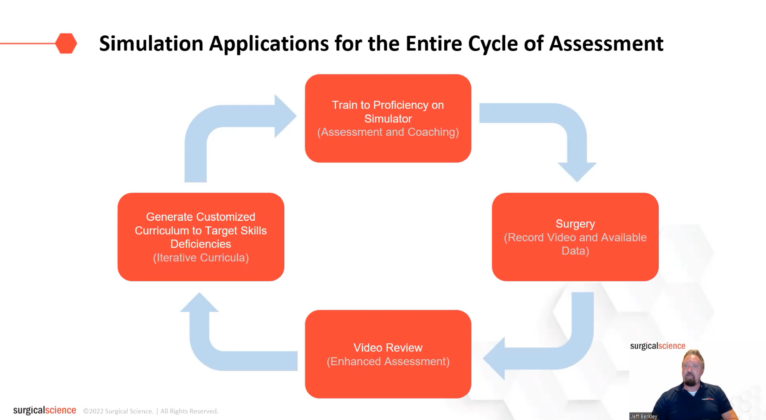Safer Robotic Surgery
Simulation Enhances Adoption of New Surgical Platforms
Are you a medical professional, researcher, or simply curious about the future of surgery?
Watch the video in which Ph.D. Jeff Berkley, Chief Innovation Officer at Surgical Science, shares his perspective on the critical role that simulation technology plays in revolutionizing surgical training and the advancement of robotic surgical systems.

Key Take-Homes with Ph.D. Jeff Berkley
- Simulation is a widely recognized modality to train and learn core competencies before entering the OR. It’s effective for learning procedural flows, allows you to concentrate on more complex parts, and helps predict errors and time for learners to reach proficiency.
- Tools will be the currency of robotics, and simulation plays an important role: Simulated virtual mock-ups accelerate development processes, such as interface testing, component design and ergonomics, allowing device manufacturers to demonstrate robots to be launched even before FDA approval.
- Synthetic data derived from simulation will be key in development of robotic tools as it allows scalability and creation of AI tools, where ethical aspects prevent collection of enough data from normal caseloads.